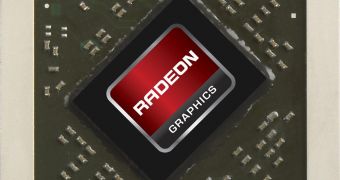AMD is reportedly planning to give up support for cards using GPUs from the infamous HD2000 series, but, unfortunately, they’ll also kill support for the successful HD3000 and HD4000 series.
UPDATE: as several readers have pointed out, this move from AMD will only affect Linux users. The Windows drivers will continue to support all Radeon HD cards.
This is most unfortunate because, while the HD2000 series are mostly gone from the market, HD3000 and HD4000 cards are still selling to this day.
We think that announcing this kind of move just two or three months before putting it into practice is not that courteous from AMD’s part toward its old or new customers. It’s not fair that the potential uninformed customer that’s planning to buy a HD3000 or HD4000 card in the following weeks be left with no support just one or two months later.
AMD should study the market before making such a move and only put it into practice a whole year after one generation has left the market completely. Customer satisfaction should be on AMD’s list of priorities.
Generally speaking, the AMD GPU user that has been treated with attention and support from AMD’s driver team will, most likely, want and recommend an AMD GPU for his work computer.
This kind of user will want his next GPU to be AMD and will also recommend and, if in his power, will decide on buying an AMD GPU for his office.
We think that hardware companies should decide together on a code of conduct when it comes to software support. Lines like: “all products using the latest and previous, most popular, API will be supported” or “if it’s still selling we’ll support it” should really be in their usual vocabulary.
It’s quite surprising that cards designed for DirectX 10 are considered old and “unsupportable” and, while a desktop user will probably find a solution compatible with his budget, what are the laptop users left to do?
We understand the budget constraints in today’s down economy, but we stand strong behind probably the most important support-related aspect – if there are promised features that don’t work correctly or not at all, or major bugs with software and setups characteristic of the supported years and not the latest years, then these issues should be solved before ceasing offering support.
Nvidia’s success this year has not really been in the hardware design, but in the great software work they’re putting into their products. We think this is an aspect on which AMD needs to improve.
Besides, Windows 8 is right around the corner and at least a Windows 8 compatible WHQL or nonWHQL driver for all DirectX 10 GPUs should be a normal gesture from AMD towards its customers.

 14 DAY TRIAL //
14 DAY TRIAL //